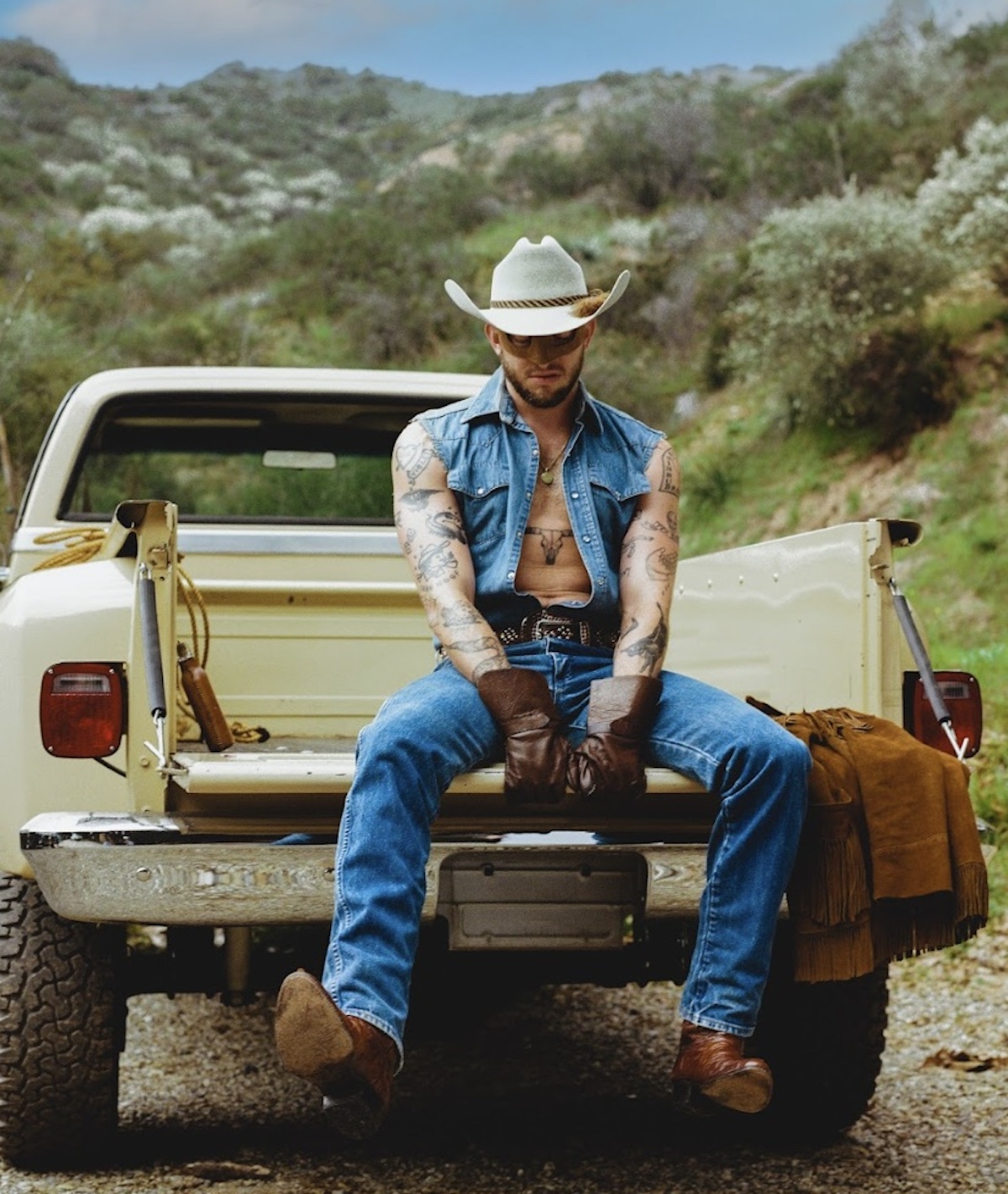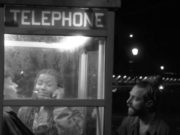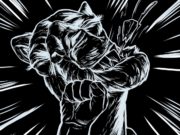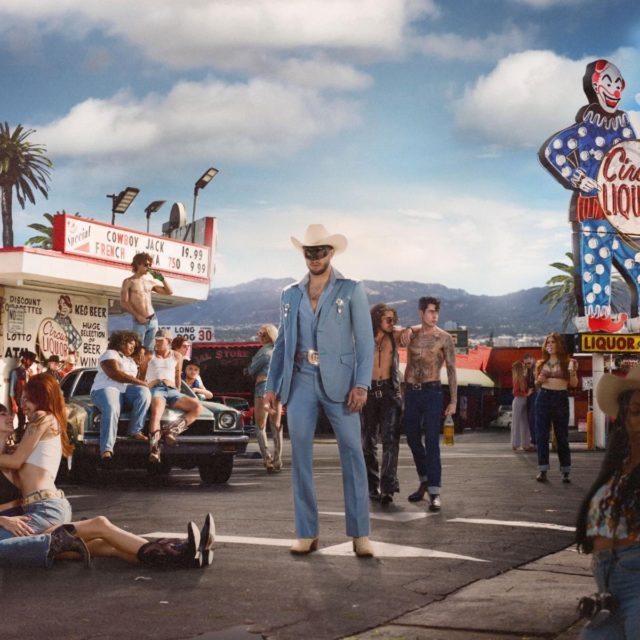THE EDITED PRESS RELEASE: “Orville Peck has long dreamed of making a Stampede, a duets album with singers, songwriters, and fellow musicians he’s long admired. And now, music icons, rebels and newcomers join hand-in-hand with Orville on his third full-length body of work to help create a two-part record that tips its hat to music’s past, present and future.
Stampede found its spark in a request from Willie Nelson. Nearly two years ago, the legend reached out to ask Orville to join him on a new version of Cowboys Are Frequently Secretly Fond of Each Other. Their cover now serves as the first single from Stampede, a two-part duets and collaborations album that unites Peck with some of the most singular voices in country, rock, alternative, and pop music from around the world. Icons like Elton John — who joins Orville for a rousing rendition of the classic Saturday Night’s Alright (For Fighting) — and Willie stand side by side on the track list, joined by artists like Midland, Noah Cyrus and more. “This project has always been something I’ve fantasized about, so to see it finally come to fruition really is a dream come true,” Orville says.
Produced by “my partner-in-crime this time around” Christopher Stracey, Stampede takes Orville “completely out of my comfort zone in ways I never would have expected, to genres I never would have imagined doing if this had been a solo record.” A long friendship with the group Midland soars sonically on The Hurtin’ Kind, which tells the “almost tropical” tale of a mythical honky-tonk that appears only to the heartbroken. Singing on one Stampede’s most stirring and resonant moments, How Far Will We Take It?, Orville and his “friend so close she’s basically family” Cyrus bare their souls as they bond over shared struggles on a ballad that’ll stick with you long after it ends.
Other collaborators include Allison Russell on the New Orleans-infused Chemical Sunset, which finds both musicians “living in this dark fantasy of us both pirouetting at the apocalypse,” he says, “with trumpet and fiddle and this argument back and forth as the world burns around us.” Nathaniel Rateliff jumps in on Conquer That Heart, a song that pays musical homage in equal measure to The Righteous Brothers, Roy Orbison and Bruce Springsteen. And alongside Bu Cuarón, Miénteme is his self-described “ ’90s Latin-pop moment,” he says with a laugh, noting his fluency in the language but previous hesitance to sing in Spanish until now.

On Stampede’s back half, Orville wades even further into his wild side, offering fans a glimpse at musical forays into disco-country, acid-rock, and a rollicking queers-only cover that reinterprets a classic text without changing a single word. In totality, the two instalments of Stampede are strung together with so many throughlines and intentionality: Covers are strategically scattered amongst the originals; horn sections and Spanish guitars appear cohesively across multiple songs, helping the album build a universe across genres and guests. “I wanted to honour each one of my guests and the incredible skills each one of them bring to the table,” Orville says, “but I also needed there to be no whiplash — it needed to be more than just a big batch of songs.”
Stampede also offers fans a look under the mask, both figuratively and literally — perhaps you’ve noticed Orville’s trademark face adornment shrinking as he’s begun rolling out the red carpet for this record? That, he says, is purposeful: “I was always so drawn to the combination of something theatrical, authentic and vulnerable. The mask helped me to be a little bit more vulnerable and a bit more myself, which was something that was difficult for me as an artist for many years. But as the years have gone by, the mask has felt less and less important to me because it’s allowed me to focus more on my skills as a songwriter, as a storyteller, as someone who can learn to be vulnerable and embarrassed and truthful in the music that I make. And I think as time goes on, I find less and less of a need for it to be such a big part of what I do.”
You can also chalk it up to inspirations like David Bowie, whose Ziggy Stardust and Aladdin Sane eras Orville cites as “important, evolutionary, and transitional.” Or, “I think it’s cool when things have a beginning and an end,” as he puts it. “I like change because even though it’s frightening and I know people feel very connected to my mask and the previous iterations of my mask — and trust me, no one feels as connected to it as I do — that change not only moves us forward and allows us to grow, it also allows us to appreciate the past and remember it fondly.”
Stampede is Orville’s third studio album, and the culmination of years of work honing his songwriting, singing, musicianship, and artistry to get to this point in his career. “When I sit back and look at all of the artists on this album, I almost still can’t believe these people wanna work with me — but the funny and empowering thing is: I can actually believe that they wanna work with me,” Orville says. “That’s the nicest takeaway from this. I feel like I’m finally learning how to take my place at the table.”







































